
Quaternary
metrics 2024
Advancing Knowledge in Quaternary Science
Introduction
Quaternary is a dynamic academic journal that focuses on the intricate and evolving field of Earth and Planetary Sciences, with particular emphasis on Earth-Surface Processes. Published by MDPI, a globally recognized and reputable publisher based in Switzerland, Quaternary has established itself as a vital resource since its inception in 2018. The journal has successfully transitioned to an Open Access model since 2019, ensuring that groundbreaking research is readily accessible to a global audience. With a commendable impact factor reflected in its quartile ranks—Q2 in both Earth and Planetary Sciences (miscellaneous) and Earth-Surface Processes—it ranks comfortably within the top 40% of its field, making it an invaluable platform for sharing innovative research and insights. The journal promotes interdisciplinary collaboration and is committed to advancing our understanding of Quaternary science through high-quality publications that appeal to researchers, professionals, and students alike. Positioned as a significant player in its domain, Quaternary continues to foster discussions that shape the future of Earth sciences.
Metrics 2024
 0.65
0.65 2.30
2.30 2.20
2.20 17
17Metrics History
Rank 2024
Scopus
IF (Web Of Science)
JCI (Web Of Science)
Quartile History
Similar Journals

INTERNATIONAL JOURNAL OF EARTH SCIENCES
Transforming Understanding of Geological ProcessesINTERNATIONAL JOURNAL OF EARTH SCIENCES, published by Springer, is a leading journal in the field of Earth and Planetary Sciences, distinguished by its Q1 quartile ranking in the 2023 category of Earth and Planetary Sciences (miscellaneous). With an ISSN of 1437-3254 and an E-ISSN of 1437-3262, this journal has been a pivotal platform for researchers, academics, and practitioners since its inception in 1996. The journal's focus encompasses a broad range of topics within Earth sciences, making it a vital resource for contributions that enhance our understanding of geological processes, climate change, and planetary dynamics. The impact factor reflects its high standards and the significance of the research it publishes, ranking it in the 74th percentile among its peers as per Scopus. Furthermore, the journal offers Open Access options, facilitating the global dissemination of groundbreaking research. The editorial team is committed to advancing knowledge in Earth sciences, serving as an essential reference for students and professionals looking to engage deeply with this dynamic field.

Gondwana Research
Illuminating the Path of Geological Research and EducationGondwana Research is a premier academic journal published by Elsevier, specializing in the field of geology, with a robust focus on the geological history and processes of the Gondwana supercontinent. With an impressive impact factor and ranking as Q1 in the 2023 Geology category, it stands as a leading platform for disseminating high-quality research. The journal features articles that advance the understanding of Earth and planetary sciences, making significant contributions to geological education and research. Researchers will find its curated content particularly valuable, as it encompasses a wide array of topics including stratigraphy, paleontology, and tectonics, all relevant to both contemporary and historical geological inquiries. Given its substantial reach and esteemed standing—ranked 5th out of 321 in its field—Gondwana Research plays a crucial role in fostering scientific exchange among global experts. Located in the United States with publication continuity from 1997 to 2024, this journal consistently attracts submissions from leading scientists, ensuring that its readership is kept at the forefront of geological discovery and innovation.
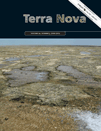
TERRA NOVA
Shaping the Future of Geological ResearchTERRA NOVA, published by WILEY, is a leading journal in the field of Geology, with a remarkable impact within the academic community. With the ISSN 0954-4879 and E-ISSN 1365-3121, the journal has been a pivotal platform for innovative research since its inception in 1989 and will continue its influence through to 2024. Ranked in the top tier (Q1) of its category for 2023, TERRA NOVA holds an esteemed position with a Scopus ranking of 67 out of 321 in Earth and Planetary Sciences, showcasing its dedication to high-quality, impactful scientific discourse. The journal covers a diverse range of topics within geology, providing valuable insights for environmental scientists, geologists, and industry professionals. By fostering an interdisciplinary approach, TERRA NOVA remains committed to advancing the understanding of geological processes and their implications for society. With a dedicated readership of researchers, professionals, and students, this journal is essential for those looking to stay abreast of the latest developments and trends in the field.
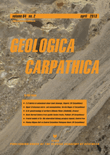
GEOLOGICA CARPATHICA
Advancing Knowledge in Geology and BeyondGEOLOGICA CARPATHICA, with ISSN 1335-0552 and E-ISSN 1336-8052, is a distinguished open access journal published by the Slovak Academy of Sciences Geological Institute, serving as a pivotal platform for the dissemination of research in the field of Geology. Established in 1991 and continuing through 2024, the journal is recognized for its significant contributions to Earth and Planetary Sciences, evidenced by its 2023 Scopus ranking placing it in the second quartile (Q2) within Geology. With an H-index that showcases its impactful publications, GEOLOGICA CARPATHICA is committed to fostering scholarly communication while promoting accessible research, having adopted an open access model since 2009. Located in beautiful Bratislava, Slovakia, this journal aims to engage a global audience of researchers, professionals, and students interested in ecological, geological, and environmental studies, making it a prominent resource for enriching the scientific community's understanding of the Carpathian region and beyond.
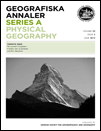
GEOGRAFISKA ANNALER SERIES A-PHYSICAL GEOGRAPHY
Charting New Paths in Earth and Planetary SciencesGeografiska Annaler Series A-Physical Geography, published by Taylor & Francis Ltd, is a leading academic journal dedicated to the advancing field of physical geography. With a rich publication history spanning from 1979 to 2024, this journal stands out in its categories, being positioned in the Q2 quartile for both Geography, Planning and Development and Geology in 2023. The journal is recognized for its contribution to Earth and Planetary Sciences, evidenced by its Scopus rankings placing it in the top 31% and 32% of its respective disciplines. Belonging to a distinguished publisher from the United Kingdom, it provides a vital platform for researchers, professionals, and students to disseminate and engage with cutting-edge research. While the journal does not currently offer open access, it remains a pivotal resource for those involved in the study of physical geography, offering insights that enhance our understanding of the Earth's processes and environments.

GEOSCIENCES JOURNAL
Unveiling the Secrets of Our Planet through Rigorous Research.Welcome to the GEOSCIENCES JOURNAL, a pivotal publication in the fields of Earth and Planetary Sciences and Environmental Science, proudly presented by the Geological Society of Korea. Established in 1997, this journal has become a prominent platform for researchers, professionals, and students, offering a rich collection of peer-reviewed articles that explore a diverse array of geoscientific topics. With an impressive Q2 ranking in both Earth and Planetary Sciences and Environmental Science categories for 2023, it stands as an essential resource in the academic community. Though it operates under a traditional subscription model, GEOSCIENCES JOURNAL remains dedicated to advancing knowledge through rigorous research. Addressed from its headquarters in Seoul, South Korea, the journal aims to foster a deeper understanding of geosciences, encouraging innovation and collaboration in tackling today’s environmental challenges.
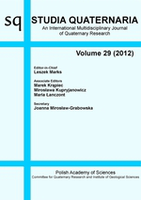
Studia Quaternaria
Uncovering the secrets of geology and Earth-surface interactions.Studia Quaternaria is a leading academic journal published by the Polish Academy of Sciences, Institute of Geological Sciences, specializing in the dynamic fields of Earth-Surface Processes and Geology. With an ISSN of 1641-5558 and an E-ISSN of 2300-0384, this journal has been a prominent platform for scholarly discourse since its inception in 2000. Operating under the open-access model, it aims to disseminate high-quality research that is accessible to a global audience. Studia Quaternaria holds a Q3 ranking in both relevant quartiles as of 2023, indicating its commitment to advancing knowledge in its disciplines despite centering in competitive academic environments. With its publications indexed in Scopus, the journal remains a valuable resource for researchers, professionals, and students looking to stay abreast of innovations and discoveries in Earth-Surface Processes and Geology. Encompassing a broad scope of studies, the journal represents an essential contribution to the geological sciences, fostering a deeper understanding of our planet's changes and processes.
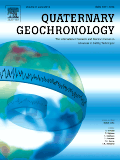
Quaternary Geochronology
Connecting the Dots in Quaternary Geochronology.Quaternary Geochronology is a leading journal published by Elsevier Ltd, specializing in the field of Earth and Planetary Sciences. With a strong emphasis on the geochronological methods and techniques used to date geological materials from the Quaternary period, this prestigious journal serves as a critical platform for disseminating significant research findings, theoretical advancements, and comprehensive reviews relevant to the stratigraphic and geological sciences. Since its inception in 2006, the journal has garnered an impressive impact factor, positioning itself in the Q1 category for its excellence in Earth and Planetary Sciences, Geology, and Stratigraphy. Quaternary Geochronology currently ranks #11 out of 55 in Stratigraphy, #74 out of 321 in Geology, and maintains a high standing across various related fields. Researchers, professionals, and students are encouraged to explore its rich archives and current issues for the latest trends, methodologies, and findings that shape our understanding of Quaternary environments. The journal does not operate under an open-access model, ensuring that high-quality peer-reviewed research is accessible while maintaining rigorous academic standards.
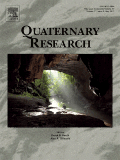
QUATERNARY RESEARCH
Bridging Disciplines to Illuminate Earth's Dynamic History.QUATERNARY RESEARCH, published by Cambridge University Press, is a leading academic journal that focuses on the study of the Quaternary Period, the most recent geological time period. With a strong emphasis on interdisciplinary research, the journal has significantly contributed to our understanding of Earth's dynamic systems and processes, making it an essential resource for researchers and professionals in the fields of Earth and Planetary Sciences, Earth-Surface Processes, and the Arts and Humanities. It is recognized for its high-impact contributions, reflected in its impressive Q1 rankings across multiple categories, including its position as 69th out of 552 in Arts and Humanities and 49th out of 195 in General Earth and Planetary Sciences, showcasing its influence and relevance in the academic community. While QUATERNARY RESEARCH does not provide open access options, it remains a crucial platform for disseminating valuable research findings and fostering scholarly dialogue. The journal's coverage spans from 1970 to 2024, serving as a comprehensive archive of key developments in the field.
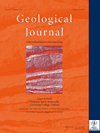
GEOLOGICAL JOURNAL
Pioneering insights into earth processes and materials.GEOLOGICAL JOURNAL, an esteemed publication by WILEY, has been at the forefront of geological research since its inception in 1951. With an ISSN of 0072-1050 and E-ISSN of 1099-1034, this journal serves as a vital platform for disseminating high-quality, peer-reviewed research in the field of geology. Operating out of the United Kingdom, the journal proudly features a Scopus rank of 80 out of 321 in the Earth and Planetary Sciences category, reflecting its commitment to scholarly excellence, with a 2023 category quartile ranking of Q2. As part of its innovative approach, GEOLOGICAL JOURNAL seeks to foster interdisciplinary collaborations, advancing our understanding of earth processes, materials, and history. Although it does not offer open access options, its robust subscription model ensures that both professionals and students have access to groundbreaking insights. With a publication history that spans over seven decades, the GEOLOGICAL JOURNAL continues to be an indispensable resource for the global geological community, encouraging discoveries that shape our comprehension of the planet.